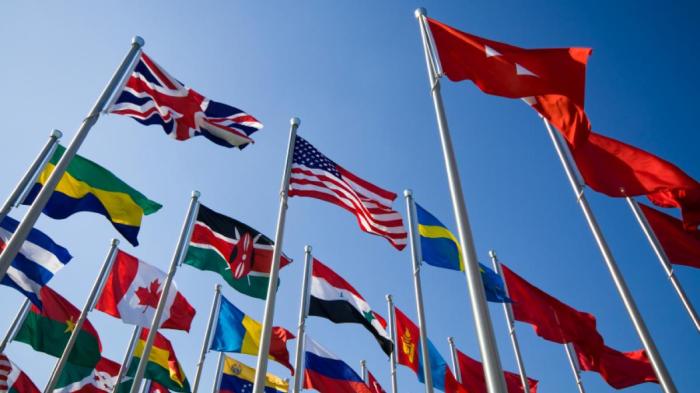 One of the coolest things I have done in my life is spend two years in southern Brazil. It was really interesting and one of the things I most value from doing it is having learned Portuguese. It is interesting to note that there are approximately three quarters of a million people in the US that speak Portuguese as their native language, and probably over a million that speak it fluently. But compared to the total population of the US, that is actually tiny. So why would knowing Portuguese be that cool or valuable? And really, why would knowing any other language be particularly valuable?
One of the coolest things I have done in my life is spend two years in southern Brazil. It was really interesting and one of the things I most value from doing it is having learned Portuguese. It is interesting to note that there are approximately three quarters of a million people in the US that speak Portuguese as their native language, and probably over a million that speak it fluently. But compared to the total population of the US, that is actually tiny. So why would knowing Portuguese be that cool or valuable? And really, why would knowing any other language be particularly valuable?
First of all, being bilingual is awesome. Seriously, it is really cool and enjoyable. To know that at any moment I can burst out in a language that pretty much nobody around me will understand is just so fun to me. But maybe I am weird, so here are some other good reasons to be bilingual. To begin, jobs. In the current job market, just knowing any other language other than English gives you a step up, even if the language isn’t necessarily that important to the job, because it means the person was willing to put a lot of mental effort into something. Secondly, the mental benefits are off the charts. Knowing another language can do things like prevent dementia at old ages and improve the ability to multi-task. And then there are things like being able to understand other cultures better, connecting with people instantaneously should they speak your second language, and improving memory. But to better show what benefits there can be to bilingualism, I think my experience of learning Portuguese will be helpful.
When I first got to Brazil, I knew pretty much nothing. I had studied Portuguese maybe 6 weeks total, formally. And the teacher was American and had quite an accent. So when I arrived, my immediate thought was “what language is this!?” It sounded nothing like what my teacher spoke. Everyone was using slang, slurring words together, and talking so fast! I didn’t know how fast someone was capable of speaking till then. I spent the better part of 3 months completely confused, having no idea how to communicate that I wanted chicken, not beef, or that I in fact was not rich nor had millions of dollars to give away (a common misconception of Americans). People laughed and I had no clue why; people got upset and I had no idea they were. I was lost. But in that time, I learned a lot and I grew a lot as a person. There are things that can only be learned by being completely isolated and yet among so many people.
After those 3 months, I started getting the hang of things. Before, at times it took massive amounts of mental effort to understand people (it hurt my mind so much that I couldn’t sustain it for more than a few minutes) and suddenly I was able to quickly decipher what was being said. Soon after that, I wasn’t deciphering anymore; I was actually thinking in the language. And it wasn’t long before I was dreaming and living in the language. When I imagined coming home, everyone spoke Portuguese in my mind until I realized (to my disappointment) that nobody back home spoke Portuguese.
One of the biggest changes I experienced in myself also occurred the most subtlely. The more I learned the language, the more I understood the culture, and the more I understood the culture, the more I loved the people. I know it is a little weird to say that I loved the people, but that is the best way to describe the feeling I have for the Brazilian people. I began to understand their mentality and perspective once I understood their language. We, as Americans, often don’t realize how much our language reflects our culture, but it really does. Let’s take for example cursing. In Brazil, they use their versions of cuss words much less than we do. They only use them when really trying to insult or hurt somebody (though the exceptions definitely exist). Here in the U.S. we seem to have little issue throwing around our cuss words casually, and really don’t limit their use to one specific situation, and we use them in humor as much as anger. I can say that the Brazilian people struck me as a much more polite people. I was serving as a missionary, and in 6 weeks in Texas, I was yelled at, had the door slammed in my face, had dogs sent after me, and treated fairly poorly by most. When I got to Brazil, the difference was like night and day. I was hard-pressed to find a Brazilian who would slam a door or yell. Many would invite missionaries into their home and most of those would offer us water and a small bit of food. And their language reflected that.
Perhaps Americans don’t understand these things as much is because not as many Americans are bilingual. Around 20% are bilingual, many of which have English as a second language, not their native. Comparatively speaking, Europe has approximately 50% bilingualism among adults. There just aren’t that many of us Americans who speak more than one language, and that can influence our culture. It isolates us and causes us to not understand other cultures as well, and that influences our beliefs and ultimately our actions. Much of the world holds the U.S. in contempt, and often for good reason. Our actions, from our cultural perspective, seem to be the right thing and good-intentioned, while the same actions from other cultural perspectives can appear selfish and close-minded, while the opposite can be true as well. In most Latin-America cultures, and definitely in Brazil, people will refer to the overweight person as “fat”, and there is no insult involved whatsoever. If someone so much as suggests so in the U.S. they could be asking for a mighty slap in the face and loss of respect. On the other hand, sarcasm is not taken well at all in many other cultures, while in the U.S. it has quickly become one of our favorite types of humor. Brazilians have a lot of difficulty understanding it, though it is starting to become more common, but there are many lines that cannot be crossed (forget “your mom” jokes, there is no worse insult).
People in the U.S. need to invest more in learning foreign languages in order to cut down the barriers that stop us from connecting with the rest of the world. Schools cannot afford to cut the foreign languages being offered, and if anything they should be expanded. More people need to spend more time abroad and more people need to put effort into the language after they have started learning. If we do this, hopefully we can change our culture for the better. We can become a more understanding people and actually do what is helpful in the world, and not just what we view as helpful but what the world views as helpful. Fortunately, many data from studies suggest that the younger generation is taking up the challenge, and I hope the trend continues.
 One of the coolest things I have done in my life is spend two years in southern Brazil. It was really interesting and one of the things I most value from doing it is having learned Portuguese. It is interesting to note that there are approximately three quarters of a million people in the US that speak Portuguese as their native language, and probably over a million that speak it fluently. But compared to the total population of the US, that is actually tiny. So why would knowing Portuguese be that cool or valuable? And really, why would knowing any other language be particularly valuable?
One of the coolest things I have done in my life is spend two years in southern Brazil. It was really interesting and one of the things I most value from doing it is having learned Portuguese. It is interesting to note that there are approximately three quarters of a million people in the US that speak Portuguese as their native language, and probably over a million that speak it fluently. But compared to the total population of the US, that is actually tiny. So why would knowing Portuguese be that cool or valuable? And really, why would knowing any other language be particularly valuable?